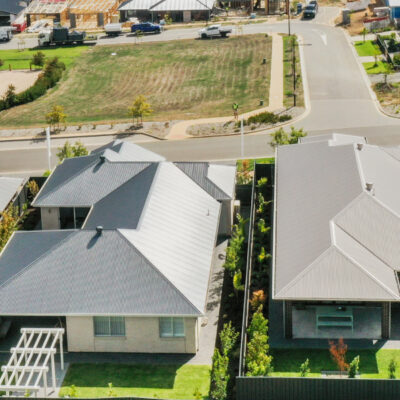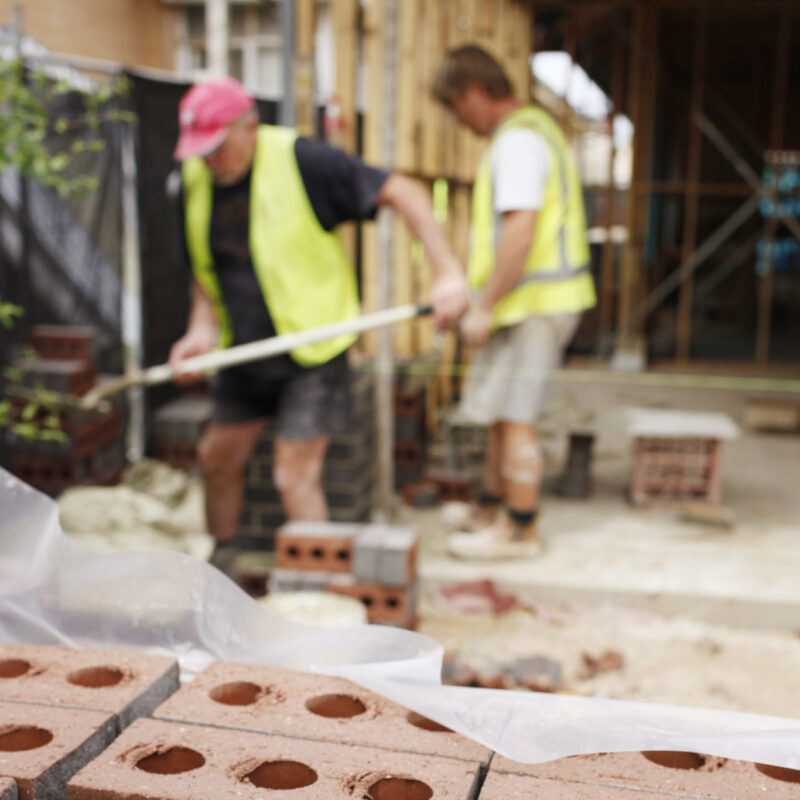18 questions to ask your mortgage lender
Navigating the complex world of home finance is tough for first home buyers. But unless you’re a member of the Kardashian clan you’re going to have to do it.
So to help you understand home loan finance we’ve made a list of questions that all first home buyers should be asking their mortgage lenders. Here it is.

How much can I borrow?
Before you start scouring the internet for your perfect first home, find out exactly how much you can reasonably afford to borrow.
This will chiefly be determined by how much deposit you’ve got, your income and your partner’s (if you’re buying together), your living expenses, and any debt that you have owing.

How much deposit do I need?
In most cases you’ll need to lay down a minimum deposit of 5 per cent. However, there are exceptions so shop around. Some credible institutions will allow you to get away with a three per cent deposit, but this will increase your Lenders’ Mortgage Insurance premiums.
Even if you don’t have a three per cent deposit, it’s important to remember that you may be able to use a guarantee from your parents (supported by a mortgage over their property, of course) as equity. But please ask their permission first. They won’t be all that impressed if you don’t.
What will my weekly repayments be?
When entering into a home loan agreement it always pays to find out what your weekly repayments will be.
Be as realistic as possible about whether you can afford the repayments, and leave yourself some wiggle room – because life happens.
Let’s say that you take out a loan for $150,000 at 6.5% over 30 years. Here you’ll be looking at having to make weekly repayments of $237.
To see what you can expect to repay based on your particular circumstances, punch your details into our easy to use loan calculator.

What are all the costs involved in buying a home?
As well as having to front up with a deposit, you’ll also need to cover other costs such as:
- Lenders’ Mortgage Insurance
- Lending fees
- Moving costs
- Stamp duty
- Legal and conveyancing fees
- Utilities connections
- Home and building insurance

What’s the best home loan for me?
For the modern buyer there are quite a few options when it comes to home loans. And while many folks opt for the mortgage with the lowest interest rate, it’s worth comparing different loan features.
Here are the most common types of home loans on offer:
- Basic variable rate mortgage
- Standard variable rate mortgage
- Fixed interest rate mortgage
- Line of credit
- Mortgage Offset
- Construction

What will I need to bring to my application interview?
If you’re looking to secure a home loan you will need to attend an interview. During the interview you’ll be expected to share a bunch of information about your financials.
Here’s a basic list of the type of documents you’ll more than likely be required to bring along:
- Proof of identity
- Proof of income from your employer such as payslips
- Any letters regarding additional income
- A record of what you owe, including credit card debts

How much stamp duty is payable on my home and land purchase?
Unfortunately, stamp duty is something that you legally have to pay within a month of buying your property.
Each state has a different stamp duty levy, but no matter which state or territory you’re buying in, stamp duty is calculated in the same way. It’s worked out based on two overlapping factors: the market value of your property or the price you paid for it.
Use our stamp duty calculator to see what kind of charges you can expect.

What costs are associated with paying my home loan early?
When shopping around, don’t forget to ask them about something called ‘early repayment adjustment’.
Lenders don’t actually want you to pay off your loan early, so they try and make it very expensive. When they sign you up for a home loan they’re ‘banking’ on receiving decades worth of interest repayments. And when you deprive them of this sweet sweet cash, they tend to get difficult.
For many of us, it might seem like an impossible feat, but it’s important to plan for the future. Maybe you’ll get a substantial pay increase over the lifespan of the loan, or maybe you’ll receive a considerable inheritance from a distant uncle that you forget even existed. You never know.

What happens if I want to switch lenders before I have repaid my loan?
You have to remember that a fixed rate home loan is a contract. So if you decide to break it by switching to another lender your existing lender will kick up a fuss.
Breaking a home loan during a fixed interest period can be expensive, which is why it’s worth getting a quote from your lender if you think you might do it down the track.

Am I entitled to receive any assistance from the government?
Both state and federal governments have some pretty generous concessions and grants available to first home buyers.
From the federal government you can expect to receive: the first home owner’s grant. This is a lump sum payment made to those who decide to build a new home. However, the amount you’re entitled to will vary depending on a few factors.
From your state or territory government you can expect: stamp duty concessions depending on whether the home you’re buying meets the eligibili criteria.
What’s the difference between prequalification and preapproval?
Both of these tasty little morsels show that you’re serious about buying a home. However, it’s important to know the difference between the two.
Getting pre-qualified is the first step towards securing your mortgage. It’s pretty basic: you supply a bank or lender with your macro financial details, including your debt, income and assets. Your lender then evaluates this information and tells you the mortgage amount that you qualify for.
Pre-approval is the next step. When you reach this point you’ll complete an official application. Here you’ll supply the lender with the info they need to perform an extensive check on your history. Once they’ve done this the lender will be able to lock-down (and make official) the specific mortgage amount that you qualify for.
Do you offer any first home buyer discounts/specials?
As a first home buyer you’re a prized commodity for any lender. So, you actually have quite a bit of power. In some cases, if you’re lucky, and if you shop around, lenders will even reduce or discount the application fee for you.
Also, they may even offer you ‘honeymoon’ interest rates to help sweeten the deal.
If mortgage insurance is payable, what will the premium be?
If you come to the table with a deposit of less than 20 per cent your lender will force you to get “Lenders’ Mortgage Insurance”.
Lenders’ Mortgage Insurance is designed to protect the lender in case you can’t make your repayments. Premiums will vary from lender to lender, and will be dependent on how much deposit you’ve got.
Once again, it’s important to compare apples with apples, so do your research.

What fees are payable on this loan?
Oh fees… Like death and taxes, they’re impossible to avoid. Be sure to ask what upfront and ongoing fees are payable as part of your home loan, as well as valuation, legal and application fees.
Some home loans come with a monthly service fee; most lenders will slug you with a fee for a late payment… Oh geez, the list goes on.
One thing’s for certain: there will be fees. So ask your prospective lenders to outline exactly what fees you can expect from them.
How long are your interest-only terms?
If your finances aren’t in the best shape you may consider applying for an interest-only loan. These loans allow you to only pay the interest on the balance, leaving the principal balance unchanged. They tend be very popular with property investors, but aren’t necessarily the best idea for all first home buyers.
These loans are a great way to help significantly reduce your fortnightly home loan repayments. As Nila Sweeney from Your Mortgage points out, interest-only loans do come with some short-term benefits. “Let’s say you own a property worth $360,000, with a $300,000 interest only loan at 7%. Your monthly repayments would be just $404 per week. On the other hand, with a standard principal and interest (P & I) loan, the weekly repayment would shoot up to $534.”
The standard term for one of these bad boys is generally five years, but in some instances you may be able to lock one down for up to 10 years.
But be careful with interest-only loans because as Liz Moyes mentions, “Interest-only mortgages have been around for years… (and) with housing prices soaring, interest-only mortgages, with their lower initial monthly payments, have become a common–and in some cases necessary–way for home buyers with modest means to stretch for a bigger home that they might not be able to afford otherwise.”

What is your mortgage repayment schedule like?
In most cases your lender will want you to make monthly mortgage repayments. Except, you don’t have to. Double check and negotiate terms that you suit you. If making fortnightly payments works best for you, find a lender who can facilitate it.
Remember to check your lender’s repayment policies to ensure they work for you.
Can I redraw on my loan?
Most lenders will let you redraw any early or additional repayments you’ve made in the past. Yet it’s important to ask them about it before you sign up with them.
Many institutions will require a period of notice before they give you back your money, or they may even require you to have a certain minimum amount available for redrawing.
Ask if there any restrictions when it comes to redrawing, cause once again, you never know what the future may hold. One month you may be looking to make additional payments towards your home loan, and then on another, you may need to redraw.
What is the best rate you can offer me?
According to most financial experts the best way to compare home loans is to ask for fact sheets. These uber handy documents should provide you with all the basic information that you need.
Key fact sheets will enlighten you when it comes to some of the macro detail of a lender’s loan. Things covered in a fact sheet will include the total amount to be paid back over the life of the loan, repayment amounts and fees and charges.

Do Your Research
As a first home buyer it’s important to do your research and talk to prospective lenders.
Mortgage lenders are all clambering to lend you cash, and as a first home buyer you’ve got plenty of bargaining power. Remember: they need you as much you need them, so shop around and don’t just go for the home loan with the lowest interest rate.
At Rivergum we’ve helped thousands of Australians realise their dreams of home ownership. If you’ve got any questions at all about dealing with mortgage lenders get in touch with us today.
Disclaimer
Any advice and information on our website is general only, and doesn’t take into account your particular circumstances and needs. Before acting on any advice on our website you should assess or seek advice on whether it is appropriate for your needs, financial situation and investment objectives.




















